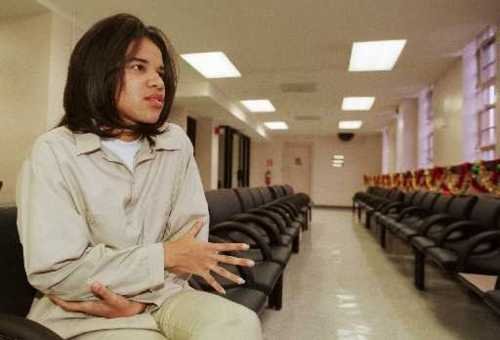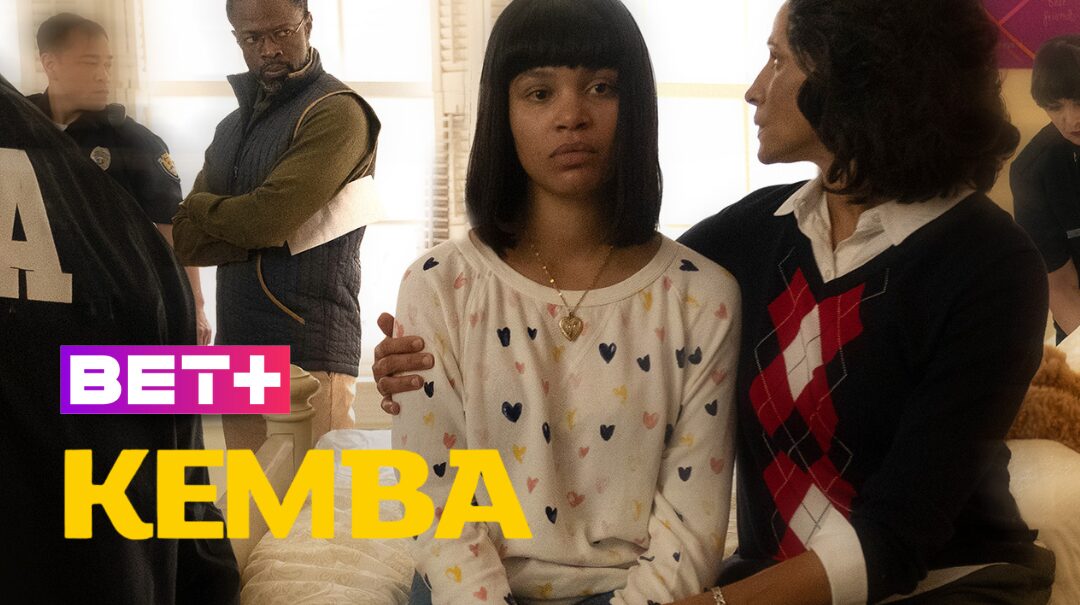
Welcome to REFORM in Focus, our thought leadership series that spotlights innovators reimagining probation, parole, and public safety. Each edition features experts who are driving meaningful change to our supervision system.




When Kemba Smith Pradia first got out of prison, her lawyers didn’t want her to speak publicly. They were trying to protect her. But Kemba knew she needed to use her voice to bring change to the U.S. prison system. She had spent 6.5 years in prison after being sentenced to 24.5 years, and she received clemency from President Clinton in 2000. She knew the system firsthand, and she knew how much needed to change.
Since her time in prison, she’s transformed into a prison reform activist and published author. On Friday, May 29, she spoke on a panel about parole and probation reform at the 2025 United Justice Coalition (UJC) Summit in New York City. We had a chance to catch up with Kemba to learn more about her background and where she thinks the criminal justice movement is heading. Dive in and see what she has to share.

Kemba Smith at Danbury Correctional Facility.
You went from receiving a 24-year sentence to earning clemency, and later serving on Virginia’s Parole Board where you made life-changing decisions for others. Can you walk us through how parole really works, and what people often misunderstand about it?
Of course, parole varies from state to state. The Virginia Parole Board consists of five people, and you’re right, it does make some very difficult and consequential decisions. People sometimes think the board would make decisions in a willy-nilly way, but this couldn’t have been further from the truth. Whenever we considered an application, we really did a deep dive on the whole situation. We met with victims. We met with the families of the applicants. And for someone to be granted parole, they had to receive either three or four out of our five votes, depending on the circumstance.
But inevitably when someone would be granted release, the media’s focus would be on the crime the person committed, however many decades ago that may be. They wouldn’t focus on who that person had become or on all the programming that person has completed, all the progress they’ve made. Sometimes these decisions were made with input from corrections officers, too. I think if there was more transparency with these decisions, so people knew the various factors that are taken into consideration, there wouldn’t be so much fear-mongering every time someone is granted parole.
I am very grateful to Governor Northam for appointing me. Not only was I formerly incarcerated, but I was also a survivor of domestic violence with a social work background. I diversified the board and brought those experiences with me to the role.
Your story has moved millions. Last year, it reached even more people through the BET+ film Kemba. Over the years, what have you learned about the power of storytelling to shift minds, change laws, and spark action?
I learned about the power of storytelling years ago when a writer named Reginald Stuart wrote an article about me in Emerge Magazine. This was in 1996, and I was still incarcerated. There was no social media. People were literally photocopying this article, sharing it all around. People used it in schools. People were reading it in beauty salons and barbershops. Different organizations made use of it. It really grabbed people’s attention and helped make my experience part of the broader conversation around the War on Drugs and mandatory minimum sentencing.
My film, Kemba on BET+, also showed the power of storytelling. One of the people depicted in the film is my friend Michelle West. We met in prison. She had a life sentence. Michelle has had a lot of people supporting her over the years, but it was my hope that my film would garner additional support for her. There’s no doubt that the film sparked more interest in her case. She served 32 years. In one of his final acts in office, President Biden commuted her sentence.

In all the conversations you’ve had around the country, what have you found people are most surprised to learn about the system?
People are usually surprised by how much power prosecutors have. The prosecutor in my case made a lot of promises he reneged on – he’s a big reason I got the sentence I did. And people are usually shocked to learn that I was only 23 years old and a first-time offender when I got sentenced to 24 years, just after giving birth to my son.
You’ve seen firsthand how probation and parole systems can either support or derail someone’s return home. Why is transforming supervision such a critical piece of justice reform?
Reforming probation and parole is critical to reentry. Probation and parole still so often serve as an extension of a person’s sentence. There can be a lot of anxiety around that – this sense that one mistake can get someone sent back to prison. Probation and parole agencies need to realize that their role shouldn’t just be law enforcement. The role should be more like social work – being able to provide resources to people who need them. We also need systems that treat people as individuals. Oftentimes these systems try to generalize. We need to understand that a person can’t be in prison for two, three, even four decades, then come out and not make a single mistake, even if that mistake is succumbing to smoking weed or not being able to make it to work, or being late for a probation appointment because you got stuck in traffic.
I feel like instead of being strict enforcers, these agencies should use evidence-based approaches. They should want to have a database of success stories, not a list of violations.
Many people feel overwhelmed or disillusioned by the challenges we face in transforming the system. What do you say to someone who wants to make a difference but doesn’t know where to start? What continues to motivate you to stay in this work?
I try to be a light to influence society to think differently. I go to conferences and community events. I listen to the news, and I still hear so many stories of injustice. I try to shape the conversation so people understand that there are mitigating factors that can lead someone down a certain path. We talk a lot about second chances, but a lot of people in this country never got a first chance. That’s important to remember. And that’s why I stay motivated.
For others out there who want to make a difference, I encourage you to listen to people’s stories. Go find organizations that are focused on the work. Or try to start your own organization in your community.
I’ll never forget, when I was interviewed by Laura Coates (who will also be attending UJC this year) on her CNN show. She basically said that reading about my story is what led her to become a prosecutor. That’s the power of storytelling. And the stories we tell can influence people around the country, including various stakeholders in the current system. So, let’s keep that in mind. Change is possible.
This year’s UJC Summit brought together hundreds of leaders and advocates to discuss the future of criminal justice reform. I understand this was your first time attending. Why was it important for you to attend?
Once I got the invitation, I knew I wanted to go. I’ve been told I’m an OG in the movement. A lot has changed in the 25 years since I got out, and it’s important to network and to stay connected to what’s happening in the field.
There’s also something reenergizing about events like this – like a Baptist church revival. Being in the movement for so long, you can get tired, but you don’t lose hope. Oftentimes it’s going to events like this that helps reenergize me, helps reenergize the movement.
When I got out of prison, my lawyers didn’t want me to publicly speak out. But I felt an obligation to use my voice. I didn’t want to cower. I didn’t want to hide under a rock. I wanted to help all the other people that were still inside. I wanted to break the school-to-prison pipeline by talking to young people about avoiding mistakes. I knew that my story wasn’t a unique one and it was not just about my case. The fastest-growing incarcerated population in the country at the time was Black women. People like me. I had survivor’s guilt, in a way. I knew everything that was poured into bringing me home, and I knew a lot of other women who didn’t have those resources who deserved to come home to their children and families, too.
Going to UJC is consistent with my life and work, and I’m grateful that I was able to share my experiences with other leaders in order to ignite reform.

Click to watch Rethinking Probation and Parole Panel at UJC 2025 moderated by Jessica Jackson, CEO, REFORM Alliance and featuring Jay Jordan, VP, Community Engagement, REFORM Alliance, Kemba Smith Pradia, Justice Reform Advocate, Author & Executive Producer, and Vincent Schiraldi, Co-Director Columbia Justice Lab
